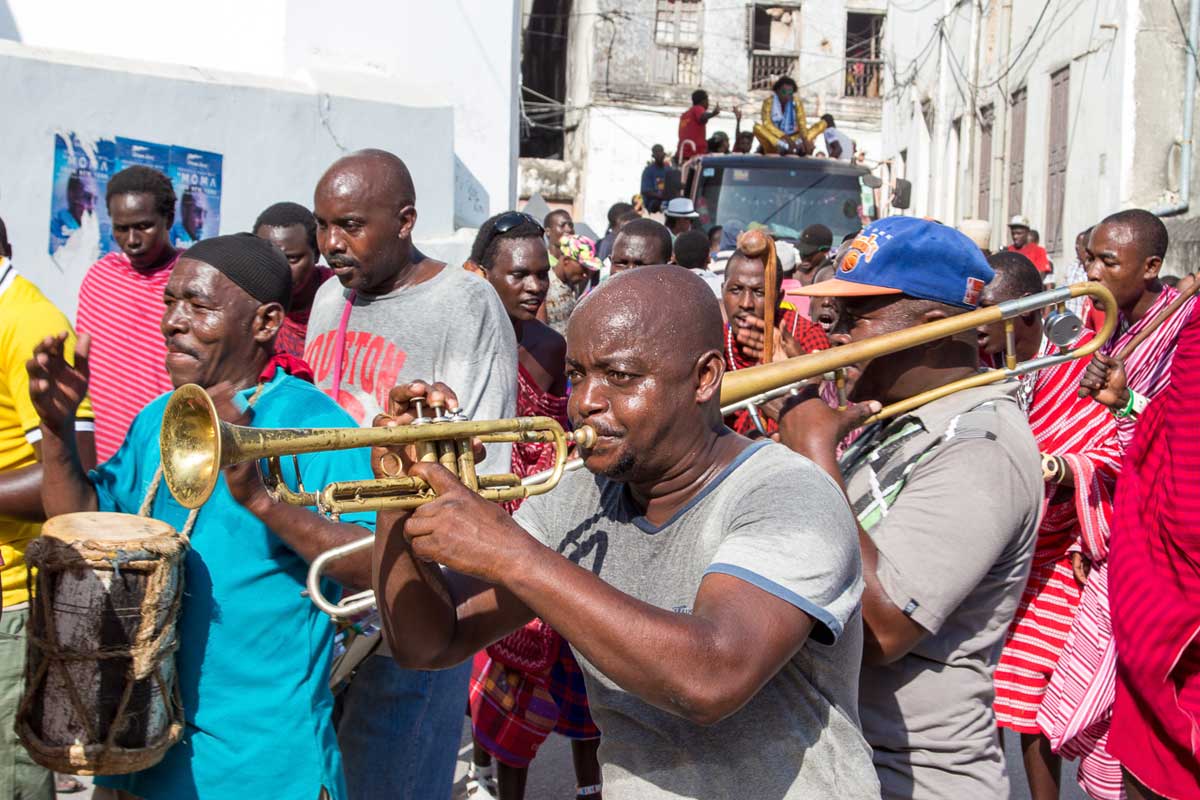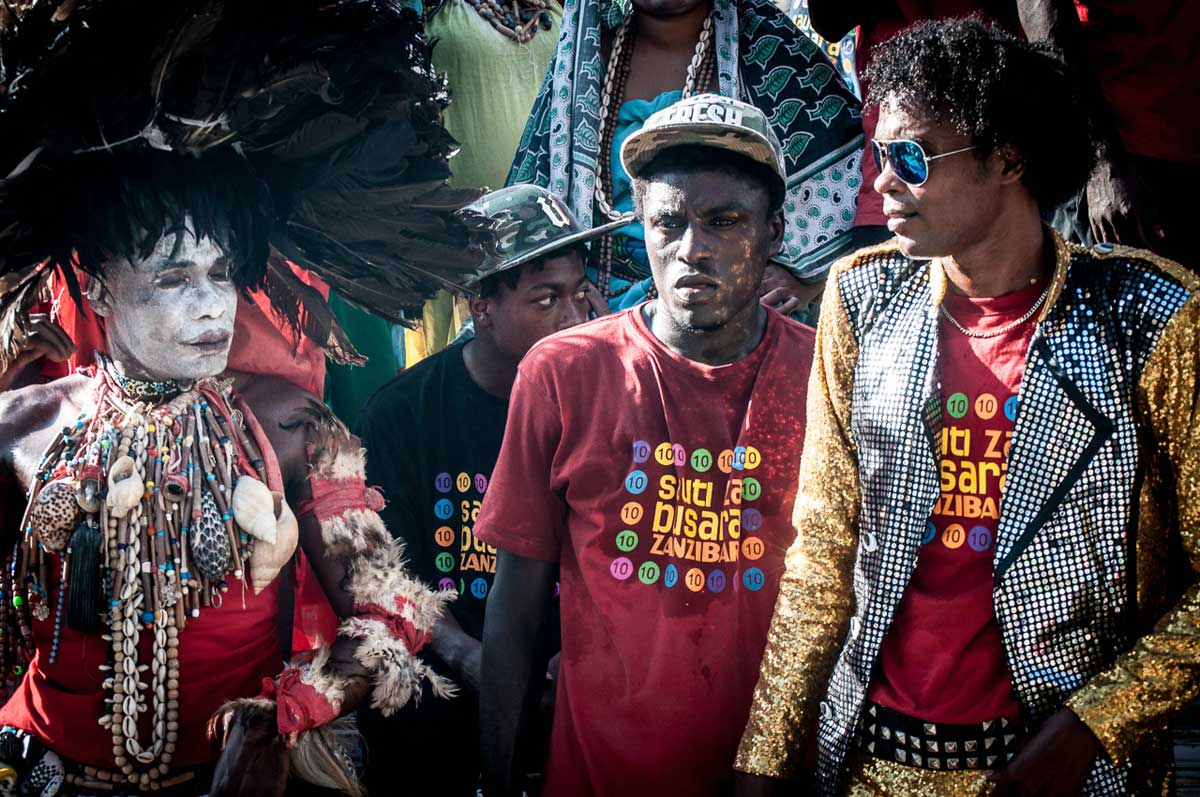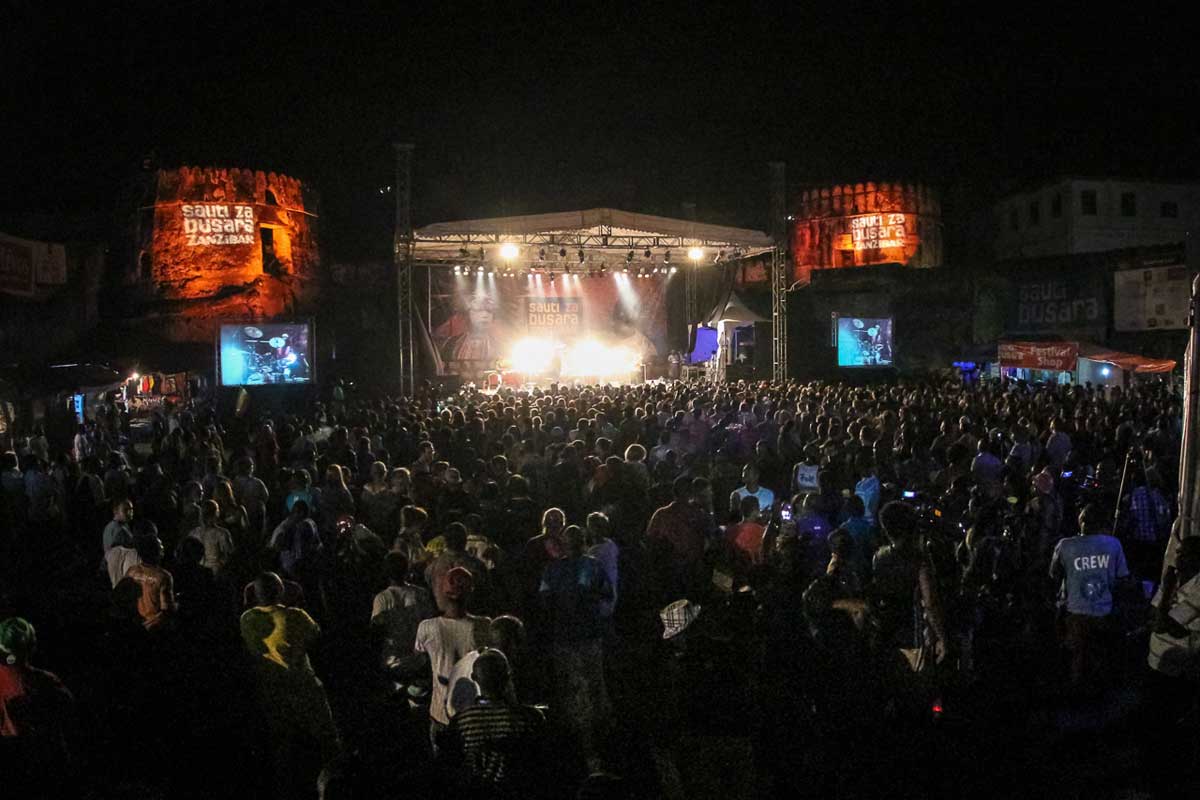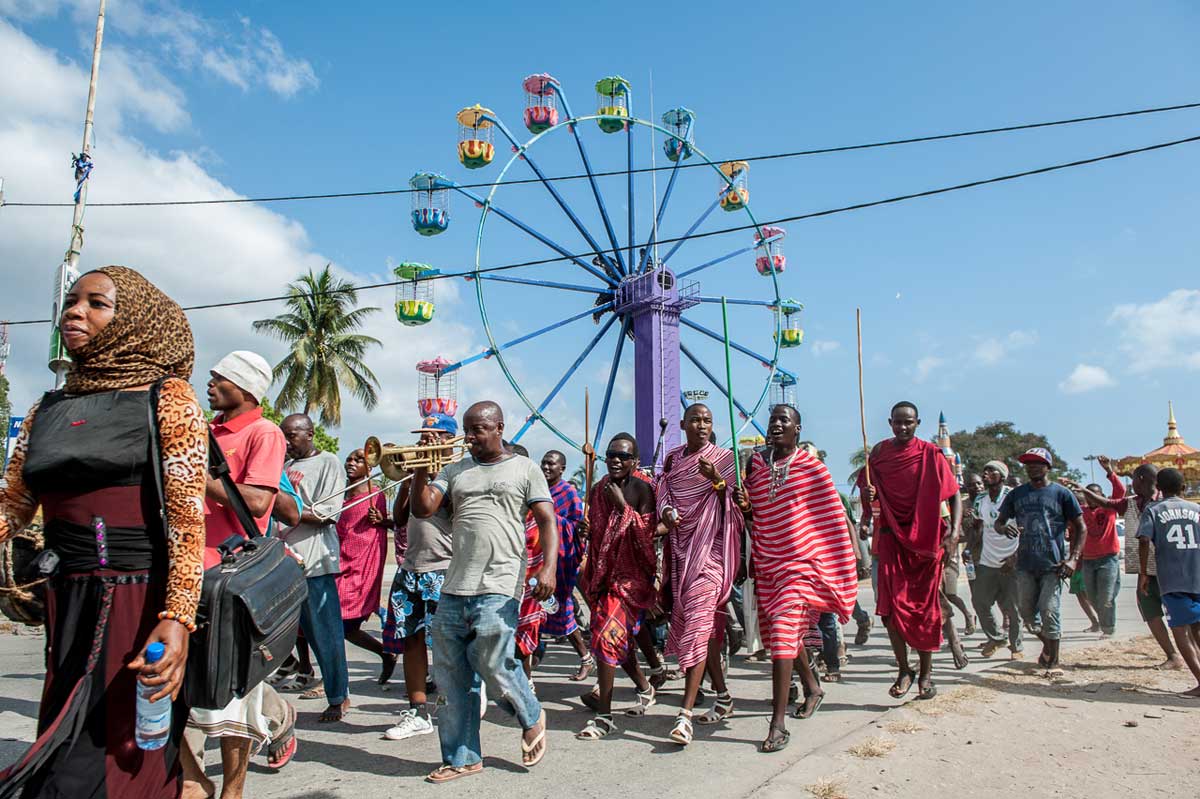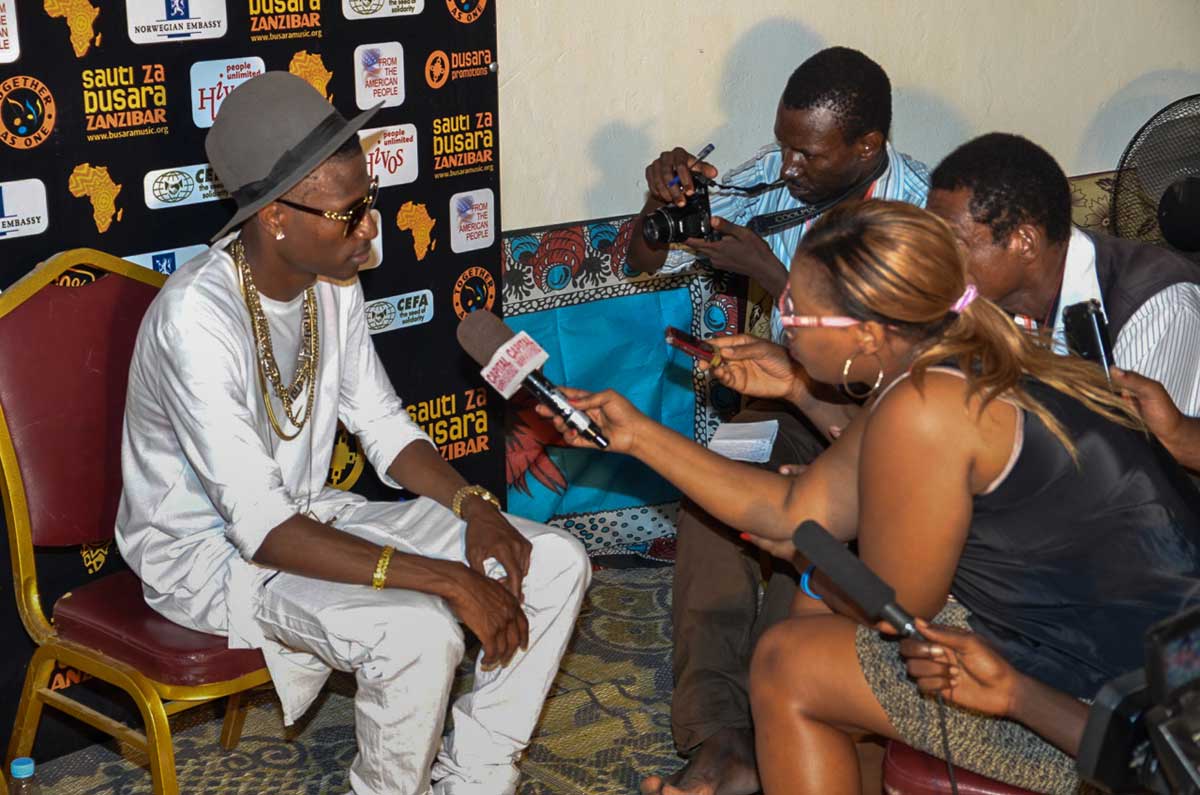East Africa’s most celebrated festival, Sauti za Busara—an annual multi-day music and arts event held in the Swahili coastal trading town of East Africa’s Stone Town—was forced to cancel it’s 2016 edition. But the festival is back in its annual tradition guaranteeing a sonically diverse line-up and a festival ambitiously bigger in scale and scope—a promise of an exciting 2017 February in Zanzibar’s soul. Held over four days in February, Sauti za Busara is more than a music festival. It’s a cultural event.
Since its inauguration in 2004, the festival has evolved into one of the most popular events on the African continent that provides networking opportunities for African artistes and music professionals, and at the same time drawing thousands of festivalgoers. On average, “5,000 people per day and 20,000 over four days attend the festival. Out of which, around 70% of the audience is from East Africa, 10% from other parts of Africa and 20% from Europe, North America, the Middle East, Australia and Japan”.
Its global popularity arising from featuring various genres of music, a rich variety of African music, showcasing popular and established musical artists as well as emerging artists, the decision to cancel its 2016 edition was a big surprise. To find out what happened, we caught up with Sauti za Busara’s festival director and Busara Promotions CEO, Yusuf Mahmoud.
Sauti za Busara has been named “the friendliest festival on the planet,” an event to witness the diversity of Africa’s music, etc. What attracts people to the festival, and what’s the essence of Sauti za Busara?
Sauti za Busara means ‘sounds’ or ‘voices of wisdom’ in the Swahili language. The festival’s main aim is to bring people together from different backgrounds to celebrate the wealth and diversity of African music. At the same time, it promotes livelihood through cultural tourism. The festival is organized by Busara Promotions, a non-profit NGO registered in Zanzibar.
How would you describe the festival’s influence on culture and people?
As the Senegalese musician Baaba Maal says, “Music is one of the most important means of communicating our history, our concerns and our values. Our traditions are carried in music, more than in books.” Music is a universal language through which the world can see how Africa is vibrant and rich in its many cultures and expressions. With these thoughts in mind, Sauti za Busara is an event designed to develop the local and visitor appreciation of the uniqueness, wealth and diversity of African music. It showcases the beauty and depth in our musical traditions, with employment and income to be gained while sustaining them.
What approach does the festival employ to produce an audience-grabbing programme?
The festival, above all, promotes respect for cultural diversity. Each year we receive around 600 artist applications. Of these, a committee carefully selects forty groups. Typically, around 70% of the festival artists are from East Africa, with others representing different regions of the African continent and the Diaspora. Our aim when curating the festival is to showcase a diverse and dynamic programme of Africa-related music that represents quality, originality, innovation, gender balance, positive messages for society, energy and excitement, ‘traditional’ and electric, rural and urban, young and emerging talents as well as ‘big names’. We give priority to music that has cultural identity, local instruments, and rhythm.Additionally, our approach, in some ways, is unique. We are not motivated to produce a festival for tourists. Keeping the festival accessible for local people is our priority, and admission is free for Tanzanians until 5pm. Discounts are also offered to other Africans, who now yearly travel to Zanzibar for the festival. Having said that, ‘All Festival’ (4-Day) passes for Sauti za Busara 2017 will soon be available through our website: US$10 for Tanzanians, $50 (other Africans), and US$100 for other nationalities.
Throughout this long running festival, what has been Sauti za Busara’s contribution to the arts and culture of Zanzibar, and Africa in general?
To date, Sauti za Busara has featured artists from 36 African countries. Over the years, it has evolved, bringing in more ‘international’ acts but retaining its local flavor. It provides a platform for the home audience to experience music from other parts of Africa, whilst showcasing the diversity of East African music. For any society, this kind of interchange is vital to the health and development of musical styles. A critical factor for Sauti za Busara’s success is its shared experience between local people and visitors. Locals get to showcase and build confidence in their tradition and culture.
In addition, the festival directly employs 150 crew members each year, and many more are employed indirectly. Of the ones directly employed, 90% are local Tanzanians. Throughout the year, people of all ages are increasingly finding ways to earn a living creatively in music and the arts.
Training workshops and seminars for skills-development and networking are key elements of the festival: for musicians, managers, media professionals and technicians from the region. For example, last year, we hosted training programs in stage management, sound engineering, stage lighting, and press and marketing skills.
Additionally, we partnered with other festivals in Tanzania, Kenya, Uganda, Mozambique, Zimbabwe, Denmark and Norway for skills, knowledge and contact sharing across borders. Through the year, and especially during the week before Sauti za Busara, we work in partnership with Zanzibar’s Dhow Countries Music Academy to provide opportunities for international musicians to meet, learn from each other, and create new musical collaborations. The fruits of these workshops are performed on the main festival stage under the title Swahili Encounters. Another space where the festival connects people is Movers & Shakers—a forum for local and visiting arts professionals to share information, exchange ideas, and network.
We also promote Busara Xtra, an umbrella for externally organized events of cultural interest. These fringe activities present further opportunities for local artists to showcase their work, encourage visitors to see more of Zanzibar, and share economic impact with the wider population.Why was the festival forced to cancel its 2016 edition?
Since 2004 the festival had not missed a year, even during a three-month period in 2010 when the whole island was without electricity. We never had a problem selling tickets; the main venues are always full. However, revenues from ticket sales cover only 20% of Sauti za Busara’s expenses. Yearly, we have had to cover the remainder from donors and sponsors. This is the slowest and most tedious part of our work throughout the year.
Before announcing dates for the 2016 festival, we had a minimum target of $200k confirmed before August 2015. But we only had $42k promised. To continue ahead with no financial confidence would have been disastrous for the festival and the NGO. The main reason donors and sponsors were not committing was due to uncertainties around the Zanzibar elections, which took place in October 2015. Results of the election were highly disputed, leading to annulment and re-run of the election in March 2016. Cancelling the 2016 festival was one of the most difficult decisions but it turned out to be wise and the right thing to do.
What was the cancelation’s impact on Zanzibar and broadly speaking?
Sauti za Busara brings a massive boost to the local economy. Mid-February used to be low season for tourism in Zanzibar, but because of the festival it is the busiest time of the year. Government statistics show the number of visitors in February increased by more than 500% since the festival started. Even conservative estimates indicate, during festival week, more than USD$7.2 million is injected to the local economy, yearly.
Everyone does well around festival week. From local taxi drivers, fishermen, to the women selling tomatoes in the market. And due to the cancellation, those who lost out on employment, cash income, energy and excitement around Stone Town, sorely missed the 2016 festival.
What are the challenges of sustaining and growing a festival like Sauti za Busara?
As the festival’s reputation grows so does our audience, which is flattering on one hand but brings with it many new challenges. Expectations raise a level every year, technical production costs escalate, etc. So we are forced to consider expanding to additional or alternative venues. In many countries, local, national or regional authorities subsidize cultural events, recognizing their value and importance for image-building, promoting tourism, boosting the economy, employment creation, etc. The main problem we experience is that even after twelve successful editions, Sauti za Busara gets zero government support. In fact, it’s the reverse as we end up getting taxed, paying for all kinds of public services, licenses and permits.
Secondly, with its mostly Muslim population, alcohol sponsorship is extremely sensitive in Zanzibar for obvious reasons. So, the usual two biggest funders of most festivals are off our list. Thus, the festival has had to partly rely on international donors and grants. I believe there will always be some reliance; however, our broader fundraising strategy is to move into larger long-term commercial sponsorships by exploiting the festival’s marketing power. Essentially become more business savvy, and rooted in longer-term ‘win-win’ partnerships.
What are the major impediments to the growth of Africa’s creative economy?
Lack of government support—with the exception of a few countries such as South Africa, Nigeria, and Morocco, where music and creativity do reasonably well as a result of government support.
What helped bring the festival back in 2017?
Determination. Perseverance. Believing this festival is essential for Zanzibar, for Tanzania, and for Africa.
What will it take to carry forward the festival’s vision and be able to sustain producing an exciting programme?
Many more sleepless nights!
The 14th edition of Suti za Busara will take place from 9 to 12 February 2017. More information can be found at the Sauti za Busara website.


